
Turn 100 Scattered Posts into 1 Book With AI
Should you start a podcast? Get the free assessment at https://aidrivenmarketer.com/pod
In this AI marketing podcast episode, Dan Sanchez and Ken Freire dive deep into the concept of developing a portfolio of ideas. Rather than throwing out standalone concepts, they emphasize the importance of clustering ideas, identifying a unifying theme, and building a structured framework that elevates authority and impact. Dan shares personal lessons from years on LinkedIn and outlines how AI tools can be leveraged to analyze, group, and package your thoughts. If you've ever felt scattered in your thought leadership, this episode is the blueprint for becoming more intentional, cohesive, and impactful with your ideas.
My Favorite AI Tools
- Tella (AI screen recording app I record all my solo episodes with) - https://danchez.com/tella
- High Level (My all in one marketing platform) - https://danchez.com/highlevel
- Zencastr (Best AI podcast tool) - https://danchez.com/podtools
- n8n (my favorite AI automation tool) - https://danchez.com/n8n
Timestamps
- 00:00 - Dan's confession: years of scattered idea posting
- 01:07 - The value of building a portfolio, not isolated ideas
- 02:20 - Frameworks are collections of ideas, not one-offs
- 03:12 - Questions to ask: what are you known for? What deserves more weight?
- 04:45 - AI tools to cluster and analyze your ideas
- 06:08 - Idea gaps and how podcasting can help fill them
- 07:03 - Finding the unifying theme in your content
- 08:53 - Real-life examples of unifying themes from Tim Ferriss, Michael Hyatt, Patrick Lencioni
- 11:32 - Why a unifying theme takes time to build
- 12:14 - Your theme reveals your core values
- 13:33 - Questions to align your theme with long-term goals
- 16:46 - Why and how to cluster ideas
- 19:11 - Human creativity and idea generation as a superpower
- 23:09 - When to write a book and why it's the ultimate portfolio
- 26:52 - Book structure, chapter quality, and packaging your ideas
Would you like me to move on to Step 2 and generate possible titles for this episode?
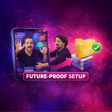
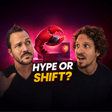


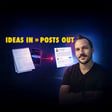

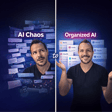


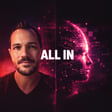



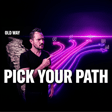
![What’s Your Authority Score? [The 5-Factor Test] image](https://media.zencastr.com/cdn-cgi/image/width=112,quality=85/image-files/630c9f06819f8b3dba5fa460/cfbaccba-f587-45de-a41f-e2c99c15e2a5.png)
![The Audience Growth Engine [Full Framework] image](https://media.zencastr.com/cdn-cgi/image/width=112,quality=85/image-files/630c9f06819f8b3dba5fa460/46b84fd1-e856-4687-9aee-6b4a7e0bc7ff.png)
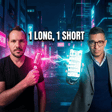
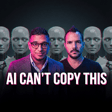
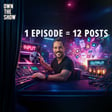
![The "Dream 100" Execution Plan [Google Sheet System] image](https://media.zencastr.com/cdn-cgi/image/width=112,quality=85/image-files/630c9f06819f8b3dba5fa460/fcd89374-76a4-4e58-a2e3-2bb7ddda4364.png)